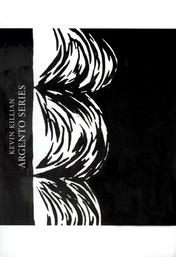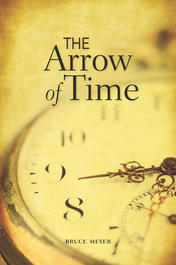Poetry

In the summer of 1939, while the Nazi panzer divisions prepared to pummel Poland, I was fully occupied with earning enough money to pay for university. With his forestry connections, my father helped me get one of the rare jobs - as a spark chaser with the Port Renfrew Logging operation on the rugged west coast of Vancouver Island. This was my first experience away from home, on my own, and among some rather rough gentlemen who viewed university students as on a par with the spruce budworm i.e., a seasonal pest. They were best eliminated by putting 100-pound tanks of water on their backs and telling them to climb 1,500 feet up a mountainside covered with logging debris.
I might have been eradicated early had not the summer turned abnormally soggy, obviating the need for a spark chaser to monitor the fires started by rubbing two sticks together - each stick weighing several tons. I was assigned to work in the timekeeper's hut, helping him keep his books and minding the counter of the small commissary. Abruptly I became a storekeeper. My first year of commerce stood me in poor stead. My customers were exclusively male, usually large and rarely in a sportive mood after a long day's battle with the outback. Deprived for months on end of the comfort that only a woman can give, they had a fierce need of something else that was soft and sweet and chewable: gum, candies and snoose. Until I became a backwoods shopkeeper, Copenhagen had been only a city in Denmark. Port Renfrew instructed me in the mystique of chewing tobacco, as the spit and image of other than baseball players. What is it, I wonder, about moving lumber that encourages sucking a cud? Is there something about absorbing nicotine through the gums that helps prevent getting beaned by a flying object?
I slept in the tiny storeroom on a cot beside a window that was only a few feet from the railway track used by the locomotives hauling logs from the upper camp to the lower. When the window was open, the loco's burst of live steam blew through it. I never needed a shower. I was dry-cleaned. This luxury was offset, though, by the floor's flea-infested sawdust, which made standing in one place for more than five seconds an invitation to pernicious anemia.
The following summer I was back, packing flea powder as all I needed to make my workplace completely congenial.
I got a rude shock.
Instead of ushering me into my private room, the Push (superintendent) informed me that I would be doing my initial job: spark chasing in the woods. The weather had betrayed me. The woods were dry. Combustion, if not spontaneous, was certainly feasible.
The Push took me personally to the upper camp in his track car - an old auto whose tires had been replaced with rail wheels. The steering wheel was superfluous. So, I felt, was I. Barrelling along, sharing the single track with a logging locomotive that could appear suddenly around the next bend, did not impress me as an improvement over any form of transport except possibly the tumbrel.
Worse awaited at the upper camp where the fallers and buckers - the front line of the war against the environment-were crowded into bunkhouses that would make a Spartan general blanch. I was assigned to one of these by the foreman, a big, mean-looking immigrant from some land where life is cheap. He took an immediate dislike to me. The foreman's house, up the side of a hill above the bunkhouse area, was accessible only by about 100 feet of wooden steps that no man trod but the owner. The reason: the foreman's wife was the only woman allowed in a camp of thirty or forty men. The foreman guarded her with a flint-edged paranoia that made it highly unlikely that I would be invited up for tea, regardless of my qualifications to discuss the French Romantic poets.
I was put to chasing sparks immediately. Herded into a crummy (a boxcar unfit for horses), the crew was taken to the cut site, where I staggered up the mountain with my backpack of spark extinguisher. My attention to smouldering logs was distracted somewhat by something I had over heard in the crummy conversation: bears were active around the cutting site. One big female with cubs had chased a road-building crew, which had to throw dynamite caps at the animal to stave off her charge. Charming. I had not been issued with dynamite caps, or a change of underwear.
I also had no hard hat. The bush-league chapeau was seen as sissified in that era of logging. Your skull was on its own. The fact that my hair was standing on end was minimum protection. If I met a bear, my best hope was that she would be very thirsty and grateful for my squirting water into her mouth. With luck the bear would not consider this libation as an aperitif to be followed by a meal that my mother had prepared: me.
After spending the long morning stumbling over logs and dodging cables that whizzed through the brush like snakes avid to amputate a limb-arboreal or human - I joined the crew opening lunch buckets. Almost at once two bears came crashing out of the bush, a big one led by a smaller, pilot bear, honing in on the scent of beef sandwiches. The other guys were accustomed to these piggy-eyed panhandlers, and tossed scraps in their direction before returning to work.
"They don't like the noise of the skidder," a chokerman explained to me, and indeed the animals did retreat into the woods.
At four in the afternoon the quitting whistle blew. However, my orders were to remain up the hill for half an hour after the rest of the crew had returned to the crummy and back to camp, my purpose being to ensure that no fire was smouldering in the slash. The crummy had barely disappeared down the track before I heard, and recognized, the crashing of ursine bodies returning to the scene. And out they lumbered, Mutt and Jeff. What had been an amusing novelty when I was in the company of ten or fifteen burly loggers became an entirely different situation for someone alone and aware that a bear can outrun a man, outclimb a man and, in my case, outlive a man.
I still had thirty minutes to go on my watch. As the bears circled me - a bear's eyesight is not great but the animal has an exquisite sense of smell-the dilemma on whose horns I was impaled was: ought I cut short my vigil, and thereby give the foreman the excuse he needed to send me packing back to town, or should I try to stare down a brace of bruins on their own turf? They were slowly zeroing in on my empty lunch bucket. I considered throwing them the pail, but when they found it devoid of food would they not be peeved enough to order sun-ripened greenhorn A la carte?
I compromised, with a slow withdrawal down the hill that only the picky would call a retreat. Moving a few yards at a time, and inspired by self-preservation, I jumped atop one of the fresh stumps and burst into song. "O Canada!" I bellowed at the bears. "We stand on guard for thee!" The bears halted, visibly shaken by an acoustic horror beyond their ken. My singing voice has much the same effect on humans. I pressed my advantage and let the bears have an earful: "God save our gracious king!" I don't say that the bears reeled. But if I hadn't destroyed their appetite, I had surely made them think about the high price they were paying to satisfy it.
I fell back to another stump. "Onward Christian soldiers, marching as to war!" I could see that this was making a diet of berries and honey look pretty good. Although the bears didn't actually throw up, their heads were bobbing as though the flow of gastric juices had definitely turned sour.
I was into a full-throated chorus of "Old Man River" when I reached the bottom of the hill, and the railway track. Luckily the speeder sent to fetch me arrived five minutes early. The driver looked at me quizzically, having caught the last few bars of my vocal. But I didn't mention the bears, suddenly feeling very tired, and closer than ever to Virginia Woolf.
Revising an essay on Virginia Woolf was my after-hours project at the logging camp, where I got access to the firstaid shack. The essay had won the UBC English Department Book Prize, and the department head, Dr. G.G. Sedgewick, considered it worthy of publication.
One of the greatest teachers ever to be lost from the legitimate stage, Dr. Sedgewick held forth on Shakespeare's plays to the delight and edification of generations of UBC students. A dapper, diminutive figure, head too large for his body, hankie tucked into the jacket cuff, red bow tie vibrating on a resonant throat, sometimes delivering Hamlet's soliloquy while reclining on the table, G.G. placed the huge football players in the front seats of the lecture hall so that he could emphasize points by striking their beetled brows with his tiny fist. The hulks often responded by carrying the prof bodily to his office, legs thrashing in mock objection.
On the strength of my screed on Virginia Woolf, Dr. Sedgewick invited me to his Kitsilano home for tea. A bachelor, he lived alone with his housekeeper, who brought us our tray and disappeared. For half an hour G.G. quizzed me about my personal habits and my relationships while he paced the drawing room with increasing agitation as my answers failed - for some reason inscrutable to me to satisfy him. When at last I left, I could tell I had somehow flunked a test not listed on the course examinations. Only much later did it dawn on me why: I was not gay.

Archive For Our Times







